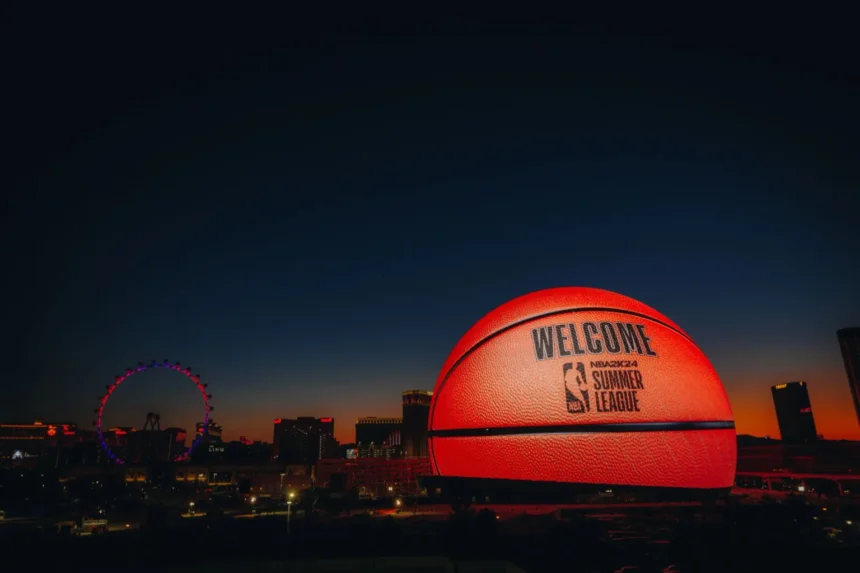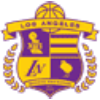The landscape of Los Angeles basketball has shifted. In a historic agreement, the Buss family—stewards of the Lakers dynasty for over four decades—have agreed to sell a majority stake in the Los Angeles Lakers to Mark Walter, principal owner of the Los Angeles Dodgers and CEO of TWG Global. With the Lakers’ franchise valued at $10 billion, this blockbuster deal sets records in professional sports. It arrives when the NBA is heating conversations around league expansion, with Las Vegas standing out as a prime candidate.
Las Vegas: The Leading Contender for NBA Expansion
Rumors and speculation around NBA expansion have crystallized with Las Vegas taking center stage. Commissioner Adam Silver recently confirmed that Las Vegas is “definitely on our list” of expansion candidates, highlighting its substantial NBA presence and infrastructure readiness. The city hosts the annual NBA Summer League, was the site of the All-Star Weekend and inaugural in-season tournament semifinals and final, and boasts a robust basketball culture. Las Vegas is also home to the WNBA’s champion Aces and has seen explosive success with NHL and NFL franchises in recent years, turning the city into a fixture on the American sports map.
Silver and NBA ownership are proceeding cautiously, having tasked league committees with conducting a thorough expansion analysis. Particular focus will fall on economic impacts, talent distribution, and ensuring any new market will elevate the league’s profile and financial foundation.
The City’s Connection to Gambling
One dimension distinguishing Las Vegas among expansion contenders is its long-standing reputation as the capital of American gaming and entertainment. Once seen as a red flag for professional leagues, the city’s relationship with gambling has evolved alongside the broad legalization and regulation of sports betting across the United States.
Adam Silver has acknowledged that, rather than shunning the industry, legalized gambling now provides formal oversight, transparency, and a significant revenue stream—factors crucial in a modern sports economy. This includes top platforms for crypto wagering, national online sportsbooks, and daily fantasy sports.
The NBA’s growing relationship with Las Vegas reflects this new paradigm. The league is confident in its ability to maintain integrity while capitalizing on fan engagement through betting and entertainment partnerships. Las Vegas’s ability to drive excitement, host major sporting events, and attract tourists aligns with the NBA’s vision for entertaining a global audience and maximizing franchise value.
Lakers’ New Ownership: Mark Walter’s Leadership and Vision
Mark Walter’s acquisition marks a new chapter for the Lakers, who have been synonymous with the Buss family since Jerry Buss purchased the team in 1979. Walter, already a minority stakeholder since 2021, brings a track record of ambitious, championship-focused ownership to the Lakers. Under his stewardship, the Dodgers have enjoyed remarkable on-field success, capturing two World Series titles and consistently ranking among the game’s most aggressive franchises in spending and community engagement.
Jeanie Buss will remain as team governor and continue overseeing operations for the foreseeable future, providing continuity through this transition. The Buss family will retain a minority share, expected to be just over 15%, with guarantees, as part of the agreement, that preserve the organization’s culture and direction. Walter’s emphasis on excellence, resources, and behind-the-scenes leadership is widely considered consistent with the Lakers’ legacy.
Context: Expansion and Valuation Ripple Effects
The sale’s $10 billion price tag—not only a record but an accurate bellwether for major league franchises—will substantially influence the economics of NBA expansion. As the Lakers’ and Celtics’ recent sales indicate, potential franchise fees for new teams are likely to rise. High prices mean expansion partners must share more in league equity, an issue league owners are examining closely to preserve the value for existing teams while activating growth in new markets.
With infrastructure investments like a proposed $300 million upgrade to T-Mobile Arena, Las Vegas is positioned to meet or exceed the NBA’s requirements. Multiple qualified ownership groups in Las Vegas have also expressed readiness to bid for an expansion team, and the city’s supportive local governance further distinguishes it in the league’s ongoing evaluation.
Measured Optimism for a New Era
The Lakers’ historic sale ushers in a new era of leadership as the NBA stands on the expansion threshold—with Las Vegas poised to play a pivotal role. The city’s strategic advantages, entertainment legacy, and embrace of regulated gambling align closely with the NBA’s goals for future growth. As the league deliberates on the next steps, fans and stakeholders alike can expect careful analysis and transparency, which are hallmarks of Silver’s administration and Walter’s business philosophy.
For the Lakers and the NBA, this moment represents opportunity bound by heritage—a balancing act between past achievements and the pursuit of sustainable progress on America’s hardwood and beyond.





